
Zhou Dongyu and Liu Haoran in Moses on the Plains - Photo: Producer
This work by Song Tuyet Dao was adapted into a film with the participation of "three golden movie queens" Chau Dong Vu and Luu Hao Nhien (male lead in the famous film Detective Chinatown).
The TV series, released a few years after the film, proved the immense popularity of Moses on the Plains .
A contemporary voice
The Vietnamese translation by Luc Huong has just been released to Vietnamese readers. Many years ago, translator Luc Huong attracted attention when translating the once-famous Tibetan Code .
He is also the translator of the 1Q84 trilogy - the most voluminous novel in Murakami Haruki's career. This time, Moses on the Plains is printed with 9 other short stories, combined into a book with the general name Moses on the Plains (Nha Nam and Hanoi Publishing House, 2025).
Set in the 1990s, the entire turmoil of the past era is condensed into a small town. There are ordinary people struggling to make ends meet. Even when life is just a flickering red ember on a cigarette butt, it is always threatened when a cold wind blows by and extinguishes it.
There are factories and plants that have collapsed after the storm of reform, after the earth-shattering changes. Those factories and plants are toothless and are laying off workers like spitting betel nut on the street.
Song Tuyet Dao's first success was to create a gloomy space, enveloping lives full of hurt and hardship. People who struggled all their lives just to live, forgetting why they lived.
Song Xuetao's words depict a world we often see in Jia Zhangke's films. Song Xuetao's literature also reminds us of Hu Ba. Hu Ba and the film The Elephant Sitting Still on the Ground. Hu Ba was born in 1988, five years younger than Song Xuetao (1983). But Hu Ba's life stopped at the age of thirty, after completing the film The Elephant Sitting Still on the Ground.
What did the generation of artists like Ho Ba and Song Tuyet Dao go through to form a worldview like the one they have laid out for us to see in movies and books? The calm, slow lines of writing can take people away without them even realizing it.
Song Tuyet Dao presents a rather full collection of books. The stories are united by the common atmosphere of people who seem to be relatives, friends, and neighbors. All of them are trapped in a narrow, confined cage. And also in that narrow, confined quality, they constantly yearn.
Still believe even without miracles
The story of Moses on the Plains has a detective story but does not arouse the reader's curiosity. It has love affairs but does not make the reader attached.
There is a harsh reality but it does not make the reader suffer. But Tuyet Dao is a charming storyteller in that she does not need to act but calmly swings between two extremes of indifference and sadness.
In that crime story, we hear the turmoil of life. The relationships that bind, the lingering tragedies that destroy life after life. A silent destruction, as slow as the fading sorghum fields. The changing city.
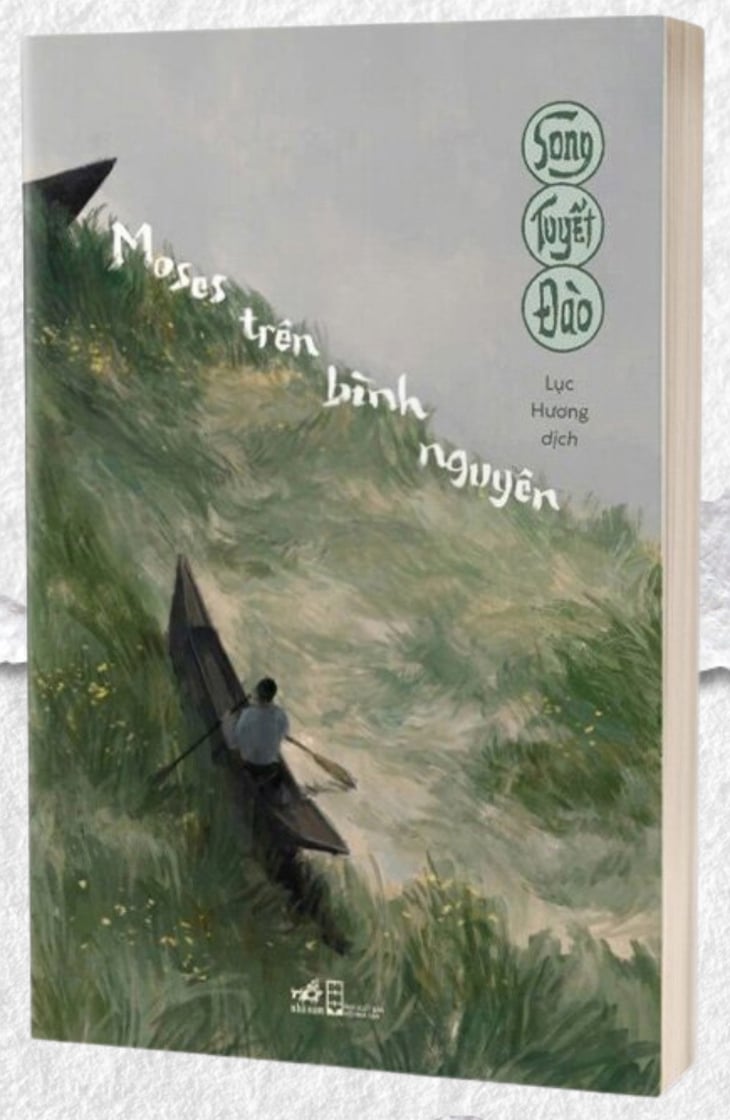
There comes a point where readers no longer care who the killer is, no longer care how the case ends.
Perhaps readers will have some hope that the young people in the story will come together. Or maybe there is no hope at all.
No hope, but also no despair. With a kind heart, they sincerely believe that "if a person's thoughts are sincere enough, the ocean waters will part before him, creating a dry path for him to walk on."
It was as if Moses had drawn a line to open the way for the people to escape.
Ultimately, despite writing about the muddy and stagnant water, Song Tuyet Dao constantly strives for a way out that seems as impossible as a miracle in the Bible.
Hu Ba again with The Elephant Sitting Still on the Ground: "In a circus in Manzhouli there was an elephant. All day long it sat there." The tagline of Hu Ba's first and last film. But the film had no elephant, nor did it have anything to do with Manzhouli.
Just as there is no Moses on the plain, there is no Moses on the small lake where two people are rowing a boat and talking to each other like dreamy words. "I cannot make the lake part, but I can turn this place into a plain, so you can cross./ She said, it's impossible./ I said, what if it is possible?".
What if it were possible? What if the seas could be parted? What if Manchuria had a sitting elephant? Would there be a chance for salvation for mankind?
"A born storyteller, a late master" are the words praising Song Tuyet Dao's talent on the book cover.
This "master" appeared late, probably because he worked in a bank for a few years. His Moses on the Plains won the first prize for Chinese Cinema Novel, the 14th Taipei Literature Award, and the 17th Hundred Flowers Literature Award.
The TV version became the first Chinese-language film to appear in the feature-length film category at the 73rd Berlin International Film Festival.
Source: https://tuoitre.vn/ngay-xua-co-nguoi-tach-bien-20251017092824891.htm








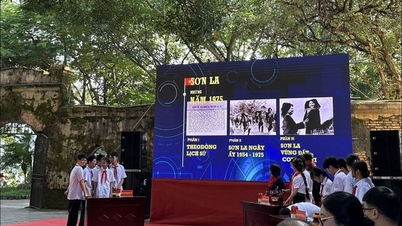








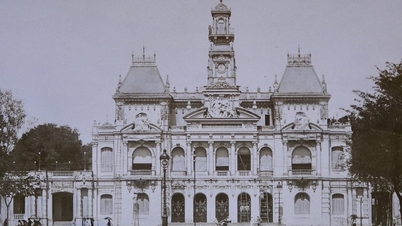











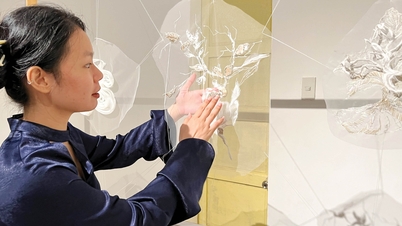
















































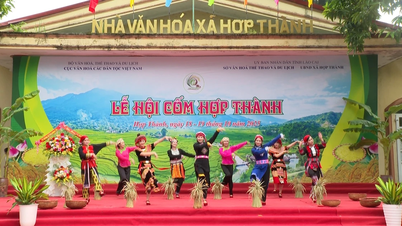





















Comment (0)